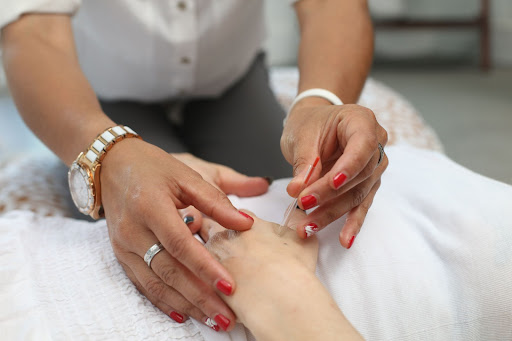Acupuncture refers to the practice of inserting very small needles into certain areas of the body; this traditional Chinese medicine has been practiced for thousands of years. It’s described as a technique for stabilizing the energy flow known as Chi or Qi (chee). It’s believed that Chi flows through certain areas of the body; hence the strategic placement of needles helps to balance and reallocate energy throughout the body for healing purposes.
By contrast, western medicine sees acupuncture as a method to stimulate nerves, connective tissue, and muscle; the goal being, it releases the body’s natural painkillers, leading to pain relief and improved overall well-being. Either way, acupuncture is a universally-practiced and precise treatment for many injuries and illnesses.
Consult With An Acupuncturist
Before moving forward with acupuncture, you should meet with an acupuncturist to determine if the treatment is appropriate for your needs. Acupuncture is a personalized experience, meaning every patient’s case is different; you won’t know how often you’ll need acupuncture until you meet with a trained professional. Depending on the injury or illness, you may need to visit an acupuncturist often, on a scheduled routine basis.
General Acupuncture Visits
You can follow some general guidelines to determine when to see your acupuncturist. But overall, the acupuncturist will ascribe a schedule for your treatments. The first thing you’ll need to do is evaluate the severity of your injury or illness, and the more acute the injury, the more sessions you’ll need to start with. In general, newer patients need more frequent treatments than long-established patients.
Consistency and Awareness
If you want results, you’ll need to be consistent with your visits. Much like going to a gym to work out, you won’t notice much improvement unless you do it regularly. On average, a new patient should come in once every 1-2 weeks. Thankfully, acupuncture tends to have cumulative effects that last a long time; even so, it’s important to remain aware of your symptoms to determine if you’re noticing any improvement.
Treatment Options
If you’re nervous around needles, you’re not alone. There are plenty of alternative acupuncture options for people who are needle-sensitive. Of all the treatments options available, non-insertive acupuncture is best for those apprehensive of needles. Non-insertive techniques include cupping, Tui Na, and Gua Sha.
Weymouth Acupuncture
Are you or a loved one struggling with chronic pain, illness, or an acute injury? Acupuncture may be a potential treatment option, and we have appointments available for acupuncture on the South Shore.
Our in-house acupuncturists are experienced and happy to answer any questions you may have.
Contact us to learn more about our Weymouth acupuncture services!
